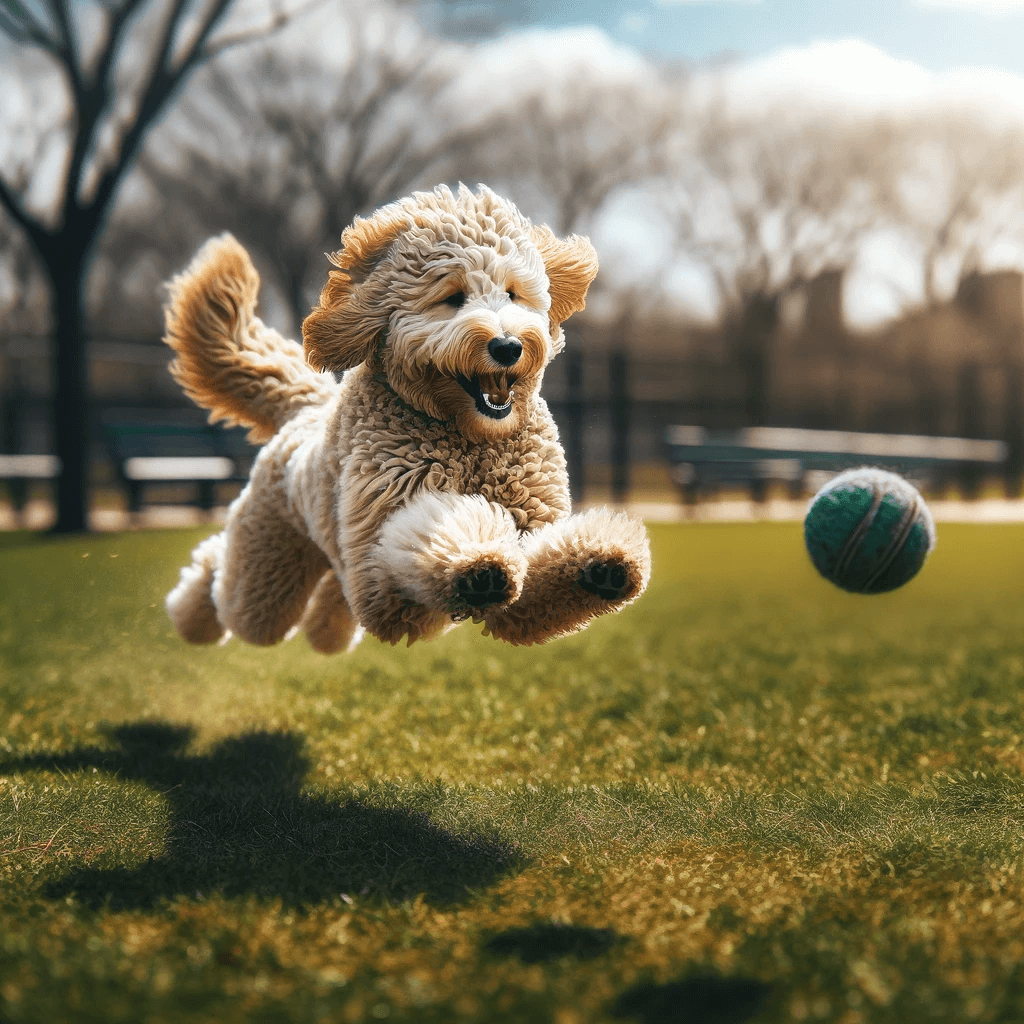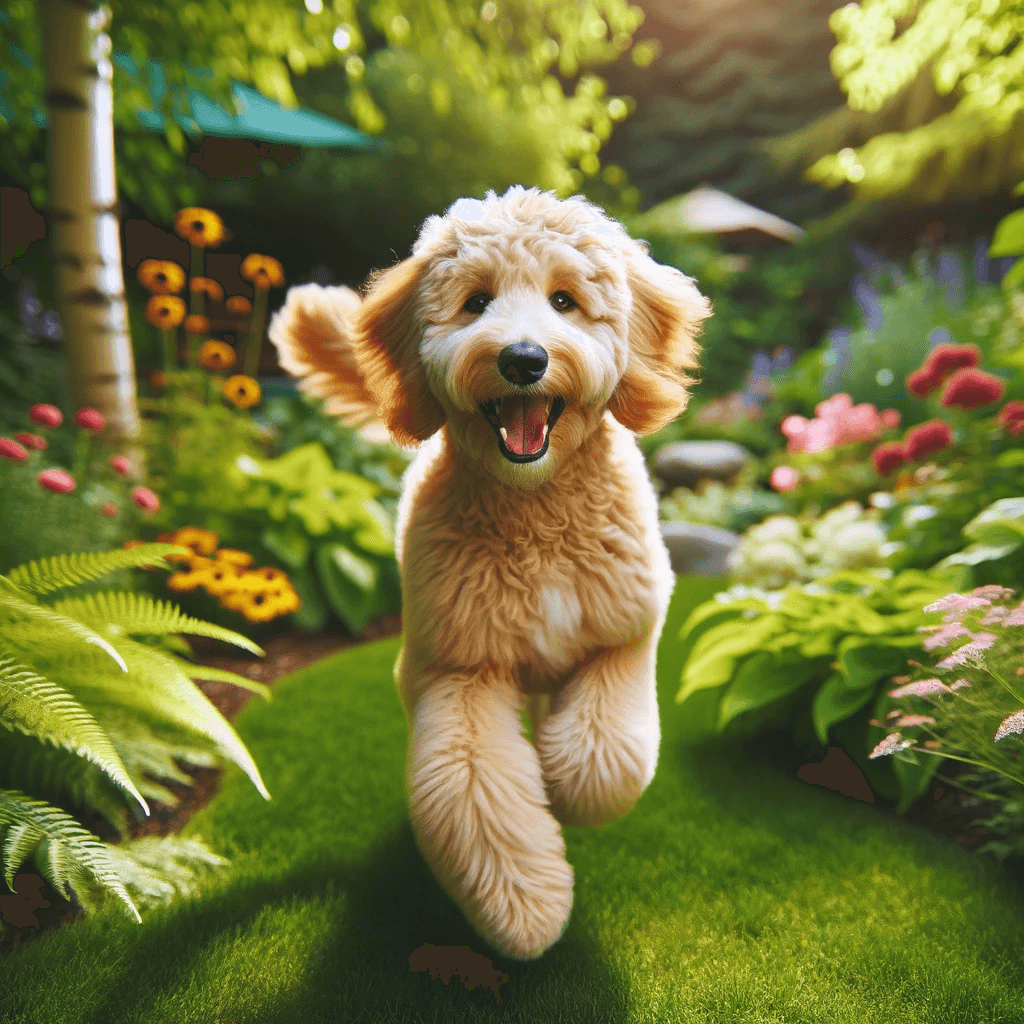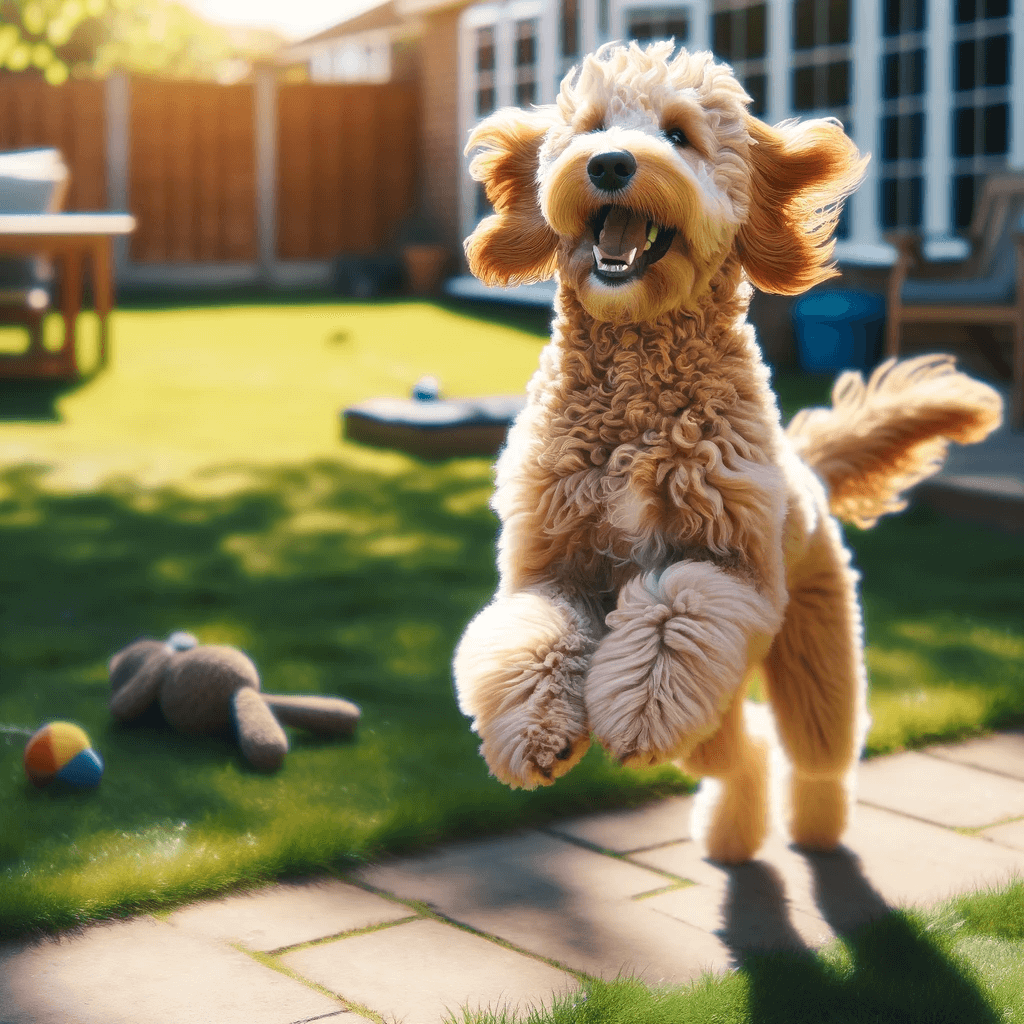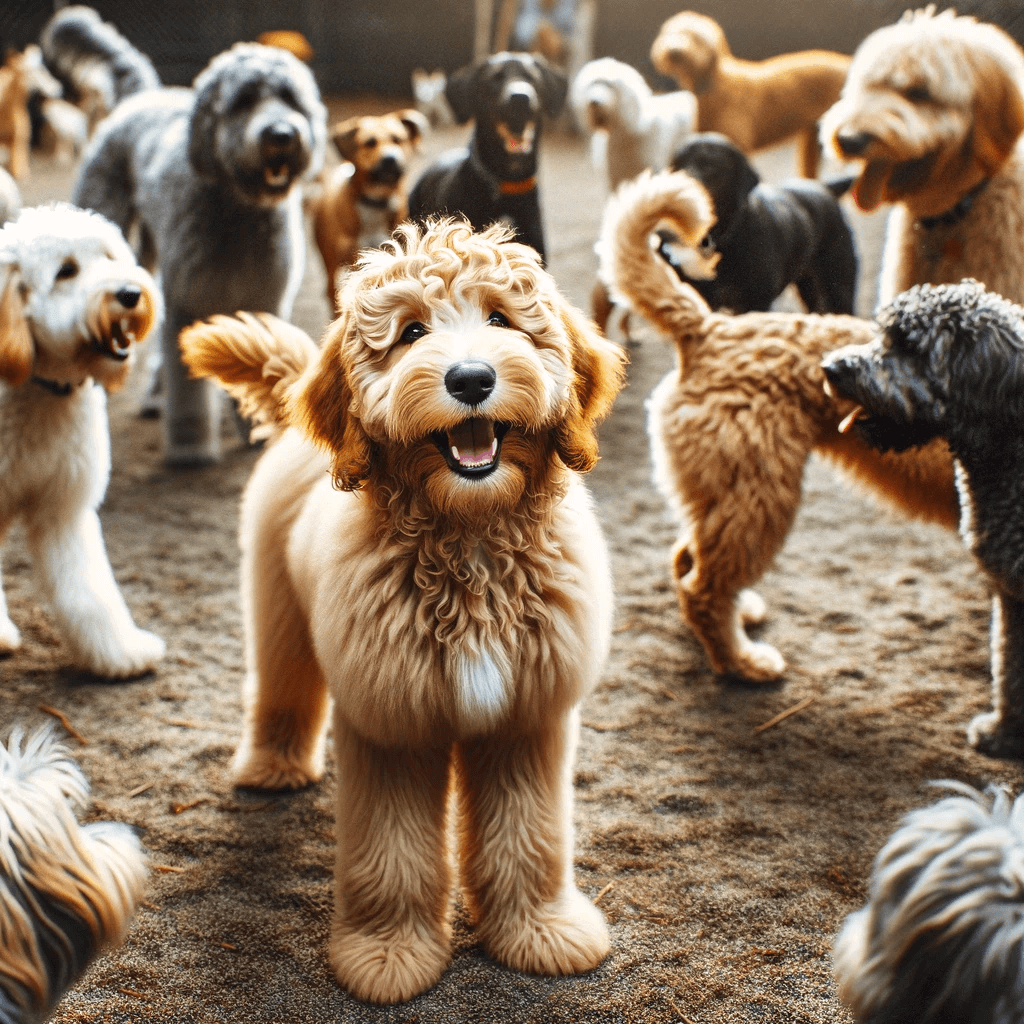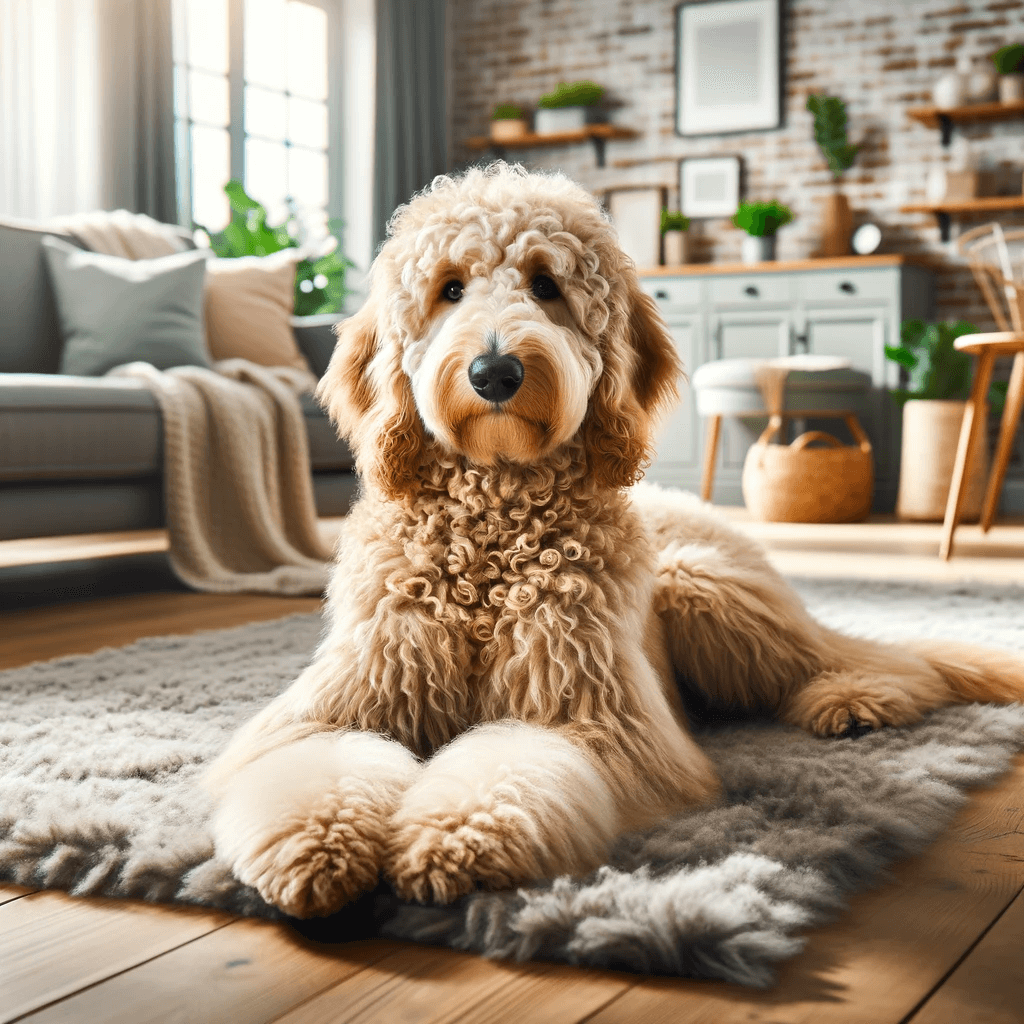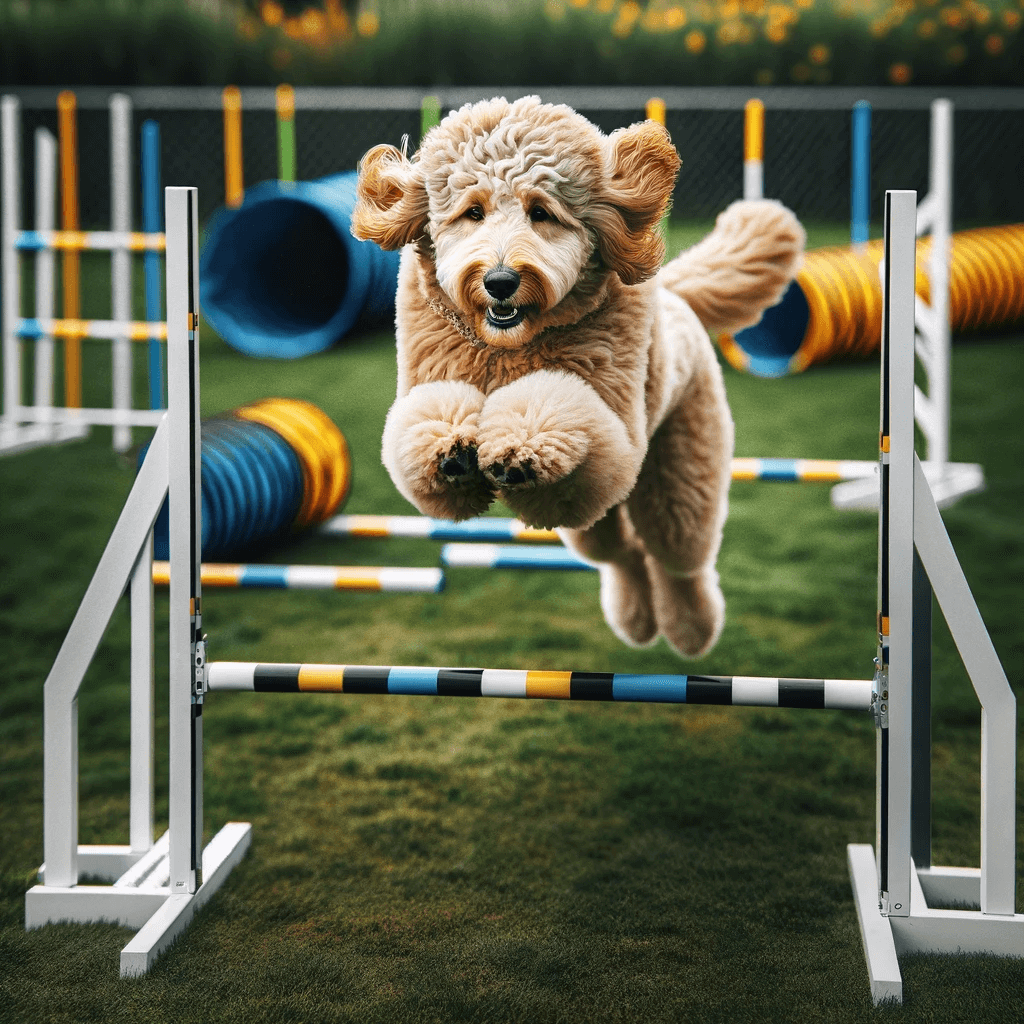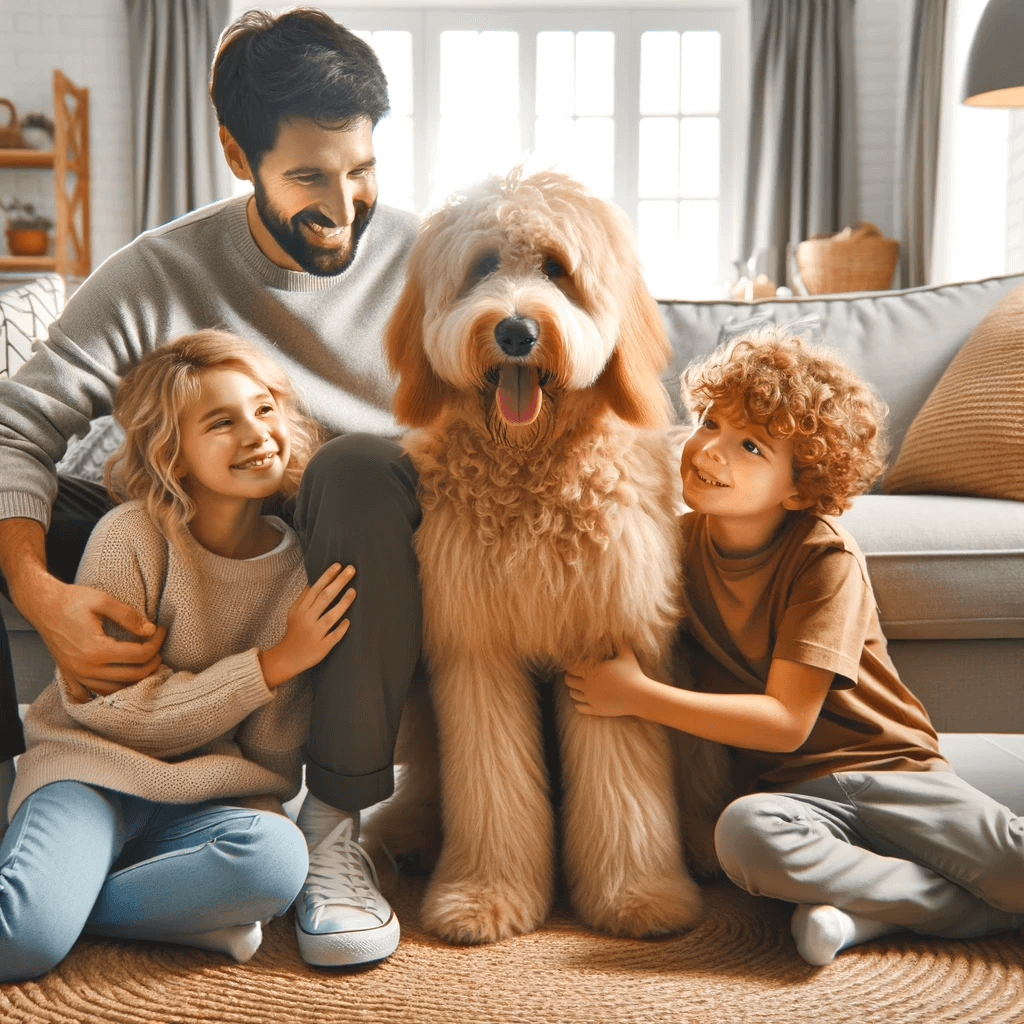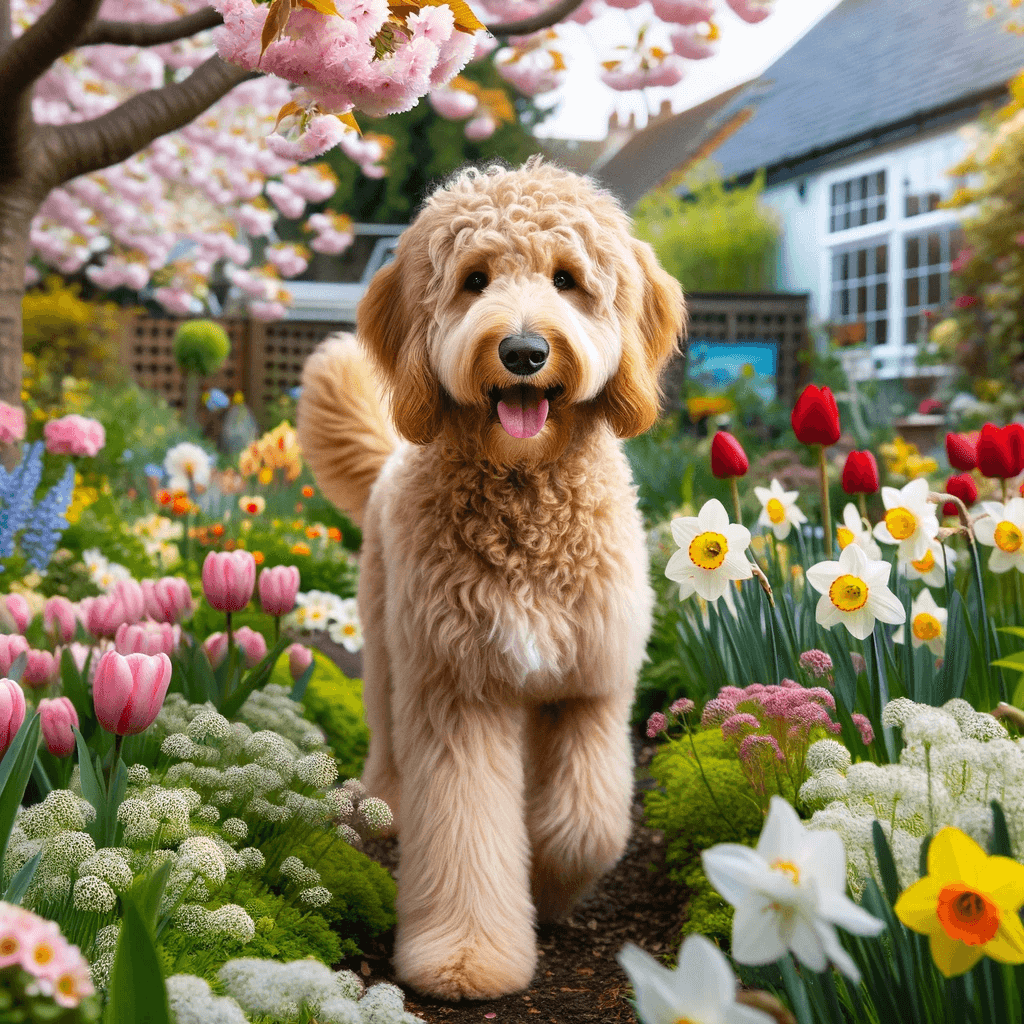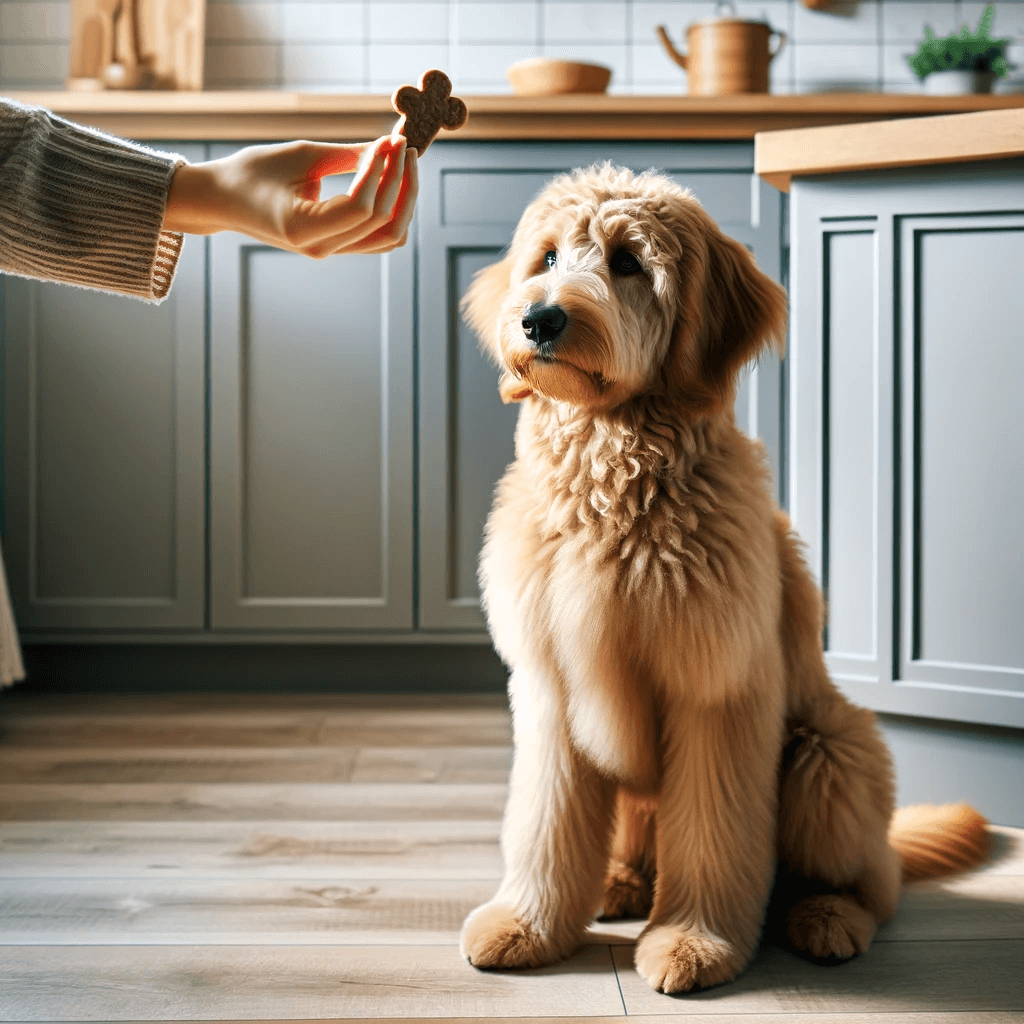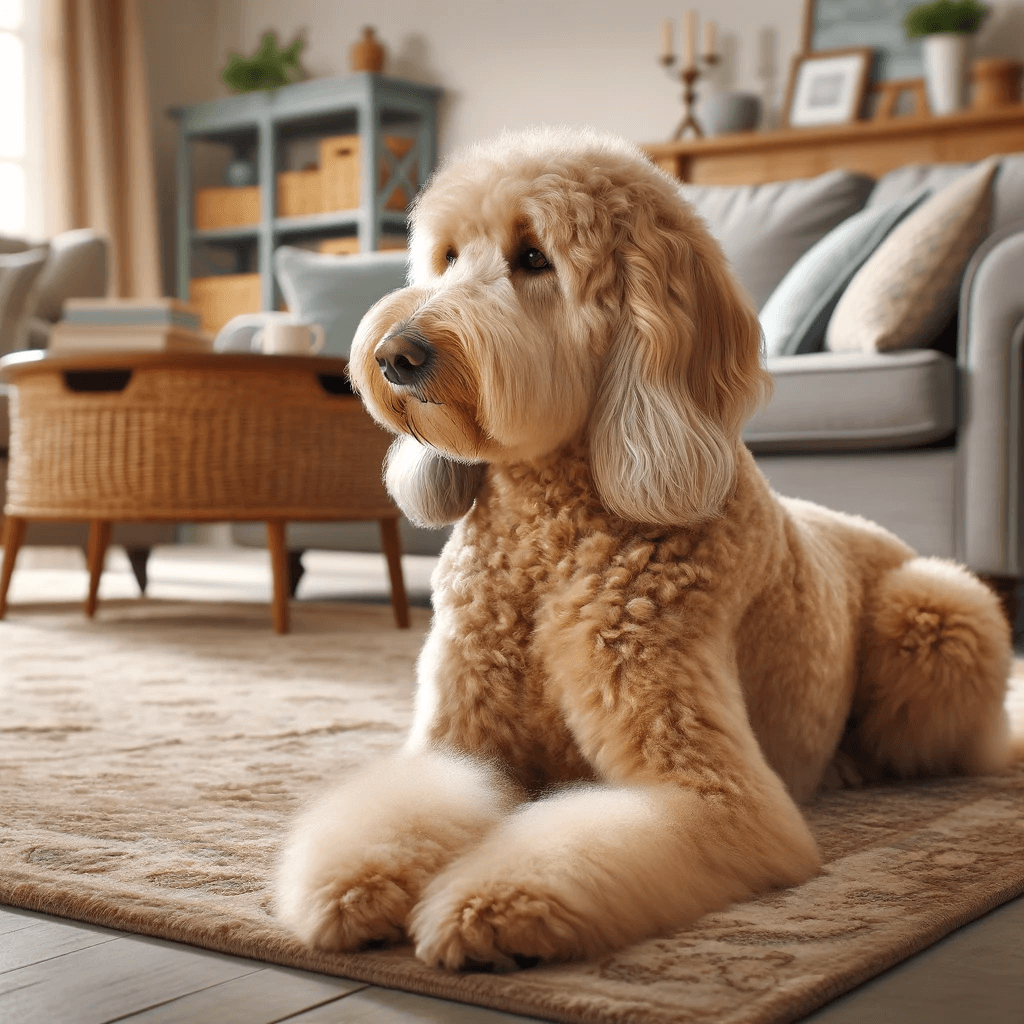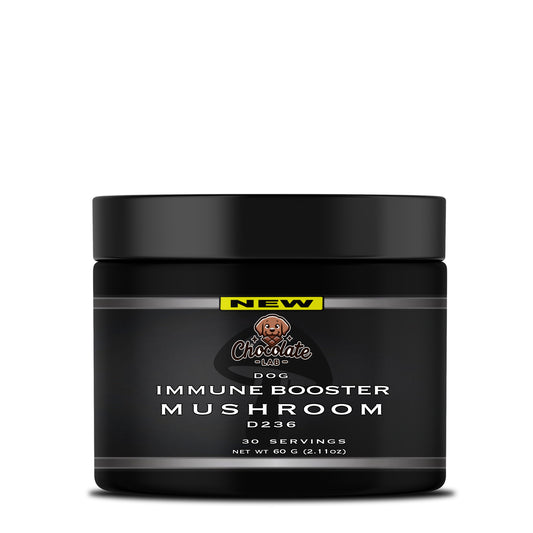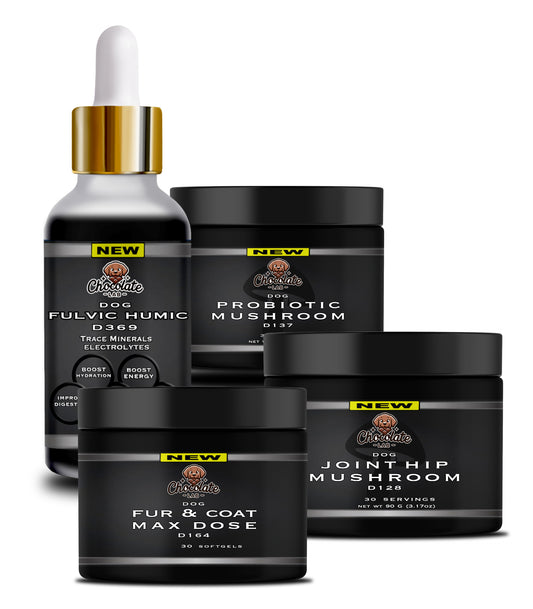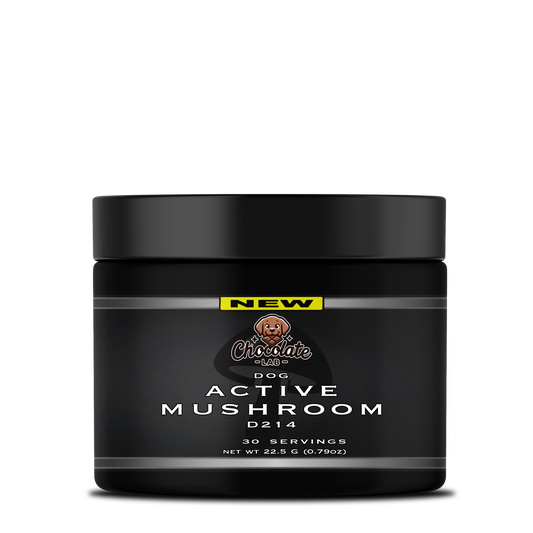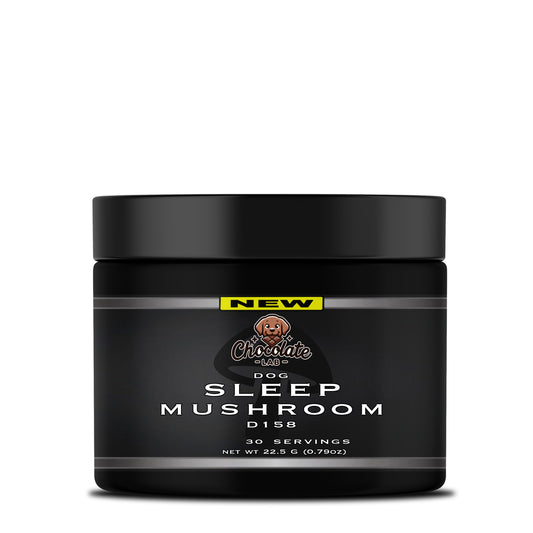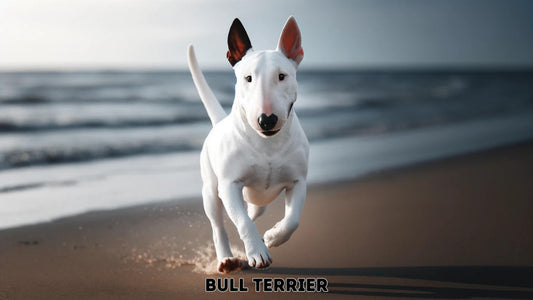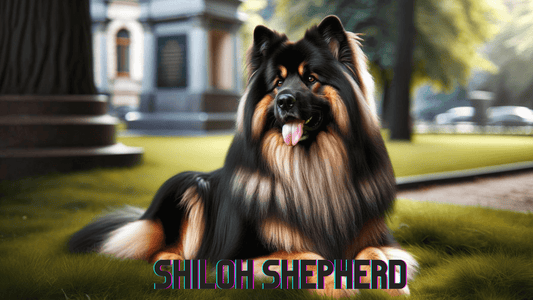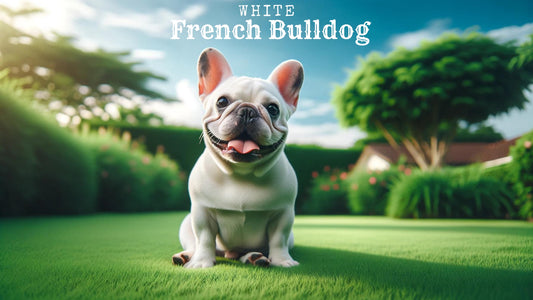The ultimate guide to Goldendoodles in 2024! Whether you're a current owner or considering bringing one of these adorable, hypoallergenic dogs into your home, this guide covers everything you need to know. Discover the unique qualities of Goldendoodles, from their friendly temperament to their hypoallergenic coat, and how to care for them.
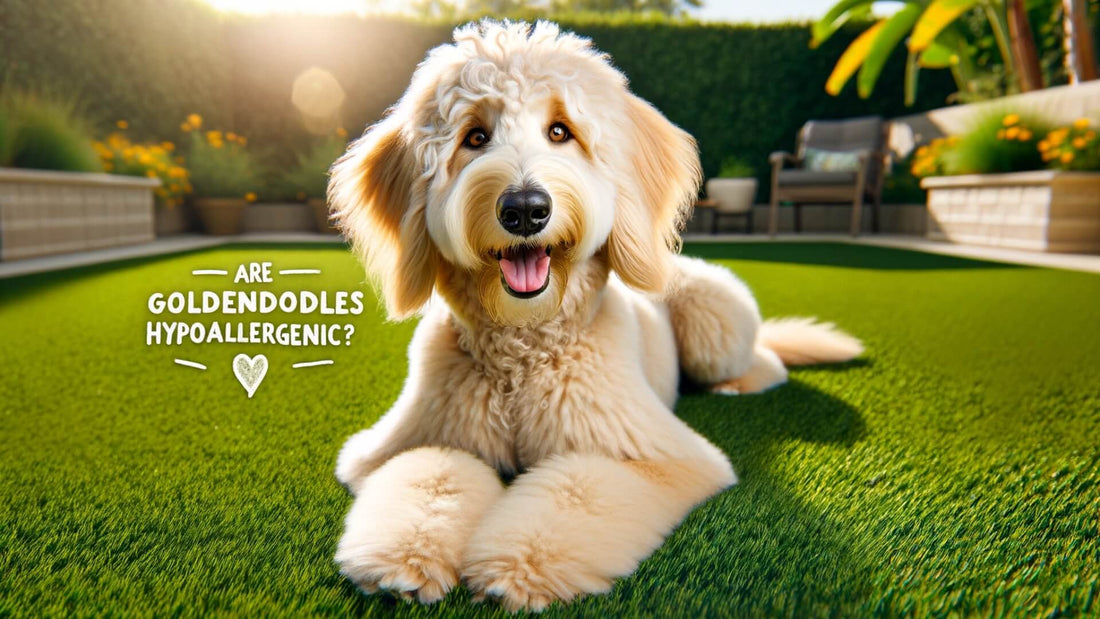
Are Goldendoodles Hypoallergenic? Unveiling the Mystery!
Discover the Ultimate Hypoallergenic Companion: Goldendoodles Unleashed!
Published on 02/01/2024, 12:34 PM MST
Last Updated on 02/01/2024, 12:34 PM MST
Key Insights on Goldendoodles: Unveiling the Hypoallergenic Companion

| Key Takeaways | Insights |
|---|---|
| Hypoallergenic Qualities | Goldendoodles have a low-shedding coat that is ideal for allergy sufferers, significantly reducing allergens in the home. |
| Family-Friendly Nature | Renowned for their gentle and loving demeanor, Goldendoodles are excellent with children and other pets, making them perfect for family settings. |
| Trainability and Intelligence | These dogs are highly trainable and intelligent, inheriting the best traits from Poodle and Golden Retriever parents, ideal for both novice and experienced owners. |
| Exercise and Mental Stimulation | Regular physical activity and mental engagement are vital, helping manage their energy levels and maintain hypoallergenic coat condition. |
| Grooming Needs | Consistent grooming, including brushing and bathing, is crucial for maintaining their hypoallergenic coat and overall well-being. |
| Health Considerations | Like all breeds, Goldendoodles have specific health needs. Awareness and regular vet visits are key to their long-term health. |
| Lifestyle Compatibility | Adaptable to various lifestyles, Goldendoodles can thrive in both active and relaxed environments, making them versatile companions. |
| Cost of Ownership | Prospective owners should consider the financial commitment—including grooming, healthcare, and nutrition—when planning to welcome a Goldendoodle into their home. |
Table of Content
- Key Insights on Goldendoodles: Unveiling the Hypoallergenic Companion
- Introduction to Goldendoodles: The Hypoallergenic Choice
- The Origins of the Goldendoodle: A Hypoallergenic Hybrid
- Physical Characteristics of Goldendoodles: Focusing on Hypoallergenic Traits
- Goldendoodle Temperament: A Perfect Hypoallergenic Companion
- Exercise and Training for Goldendoodles: Keeping Allergies at Bay
- Health Insights: Caring for Your Hypoallergenic Goldendoodle
- Grooming Essentials for Goldendoodles: Hypoallergenic Maintenance
- Goldendoodles in Allergy-Prone Families: A Compatible Pet Choice
- Differences Between Various Goldendoodle Generations: Hypoallergenic Comparison
- Choosing a Hypoallergenic Goldendoodle Puppy: A Buyer's Guide
- The Unique Allure of Goldendoodles: Hypoallergenic and Beyond
- Pros and Cons of Owning a Hypoallergenic Goldendoodle
- Cost Analysis for Owning a Hypoallergenic Goldendoodle
- Why a Goldendoodle is an Ideal Hypoallergenic Pet
- FAQs on Goldendoodles and Hypoallergenic Qualities
Introduction to Goldendoodles: The Hypoallergenic Choice

Goldendoodles have emerged as a beloved hypoallergenic dog breed, ingeniously blending the Poodle's intelligence and low-shedding coat with the Golden Retriever's affable nature. This breed has become a beacon of hope for allergy sufferers, who long for the joy of dog ownership minus the discomfort of allergic reactions. Their skyrocketing popularity is not just due to their hypoallergenic qualities but also their enchanting personalities, adaptability, and endearing appearance.
These dogs come in a range of sizes – Mini, Medium, and Standard – each fitting seamlessly into various living spaces and lifestyles. Beyond their hypoallergenic traits, Goldendoodles are cherished for their playful demeanor, sharp intelligence, and profound bond with family members, making them more than just pets, but loyal and loving companions. These dogs are a testament to thoughtful breeding, meeting the needs of modern pet owners while maintaining all the delightful characteristics that make dogs man's best friend.
Key Elements
- Brief History: The Goldendoodle is a relatively new breed, conceived in the 1990s with the aim of creating a family-friendly dog that's easy on allergies.
- Distinct Features: They boast a variety of appearances, from curly to wavy coats, and their temperament is ideal for families – gentle, friendly, and highly trainable.
- Rising Popularity: Their increasing demand among people with allergies stems from their low-shedding coat, making them a preferred choice for families and individuals seeking a less allergenic pet.
In-Depth Look at Goldendoodle Characteristics
| Trait | Description | Importance for Potential Owners |
|---|---|---|
| Size | Mini (up to 30 lbs), Medium (30-45 lbs), Standard (45+ lbs) | Perfect for various living conditions, adaptable to owner’s lifestyle |
| Coat Type | Wavy to Curly, Less Prone to Shedding | Regular grooming required, ideal for reducing allergens in the home |
| Temperament | Intelligent, Family-Oriented, Friendly | Suited for families, adaptable to different environments, easy to train |
Quick Tips for Prospective Goldendoodle Owners
- Evaluate the Goldendoodle's size and energy to ensure compatibility with your living environment and lifestyle.
- Regular grooming is essential to maintain their hypoallergenic coat and minimize allergen exposure.
- Be aware of their dietary and exercise needs for a healthy, happy dog.
- If you're considering a Goldendoodle and have concerns about allergies, you might also wonder about related breeds. Explore Do Labradoodles Shed? to get insights into shedding tendencies.
The Origins of the Goldendoodle: A Hypoallergenic Hybrid

The origin of the Goldendoodle is a fascinating tale of intentional breeding for optimal traits. Born out of the desire to combine the Poodle's hypoallergenic qualities with the Golden Retriever's amiable disposition, the Goldendoodle was bred into existence in the 1990s. This hybrid creation was aimed at providing a solution for those who love dogs but struggle with allergies. It represents a significant advancement in understanding canine genetics and their implications for human-animal interactions, particularly for individuals with specific health concerns like allergies.
The Goldendoodle's development over the years has been guided by a commitment to enhancing its hypoallergenic traits while retaining the intelligence, friendliness, and trainability of its parent breeds. Today, the Goldendoodle stands as a shining example of how selective breeding can result in a dog that not only meets specific human needs but also provides the companionship and love that all dog lovers seek. These dogs have gained a reputation for being fantastic family pets, skilled therapy dogs, and loyal companions, making them one of the most popular and beloved hybrid breeds.
Highlights
- Parent Breed History: The Poodle, renowned for its intelligence and hypoallergenic coat, and the Golden Retriever, known for its friendly and trainable nature, were combined to create a breed that embodies the best of both.
- Concept of Creation: The breeding of Goldendoodles was grounded in the desire to produce a dog that reduces allergic reactions, enabling more people to enjoy the companionship of a canine friend.
- Evolution of Hypoallergenic Traits: Careful breeding practices over the years have refined the hypoallergenic characteristics of the Goldendoodle, making them increasingly suitable for allergy sufferers.
Understanding the Evolution of the Goldendoodle Breed
| Generation | Poodle Percentage | Golden Retriever Percentage | Hypoallergenic Trait Strength |
|---|---|---|---|
| F1 | 50% | 50% | Moderate hypoallergenic traits |
| F1B | 75% | 25% | Enhanced hypoallergenic traits (Ideal for severe allergies) |
Advice for Recognizing Hypoallergenic Goldendoodles
- Look for a coat that resembles the Poodle's, as it typically indicates a lower likelihood of shedding.
- Spend time interacting with the dog to determine your allergic reactions and ensure the breed is a good fit for you.
- Discover the similarities and differences between Goldendoodles and Labradoodles by delving into 'Are Labradoodles Hypoallergenic?' to make an informed decision about hypoallergenic dog breeds.
Physical Characteristics of Goldendoodles: Focusing on Hypoallergenic Traits

Goldendoodles are renowned for their striking physical attributes that contribute significantly to their hypoallergenic nature. These dogs display a splendid range of coat colors, from cream to golden, and textures that vary from wavy to curly. Their unique coats are central to their hypoallergenic status, as they tend to shed less, reducing the amount of pet dander and hair in the environment. This characteristic is particularly beneficial for allergy sufferers.
In terms of size, Goldendoodles come in three main varieties: Mini, Medium, and Standard, each with its unique charm and suitability for different family sizes and living spaces. They typically have expressive eyes and an ever-welcoming smile, adding to their irresistible charm. The physical appearance of a Goldendoodle can vary significantly depending on their genetic makeup, particularly the balance of Poodle to Golden Retriever genes. Their endearing looks coupled with their hypoallergenic coat make them not just a joy to have around but also a practical choice for those with allergies.
Focus Points
- Coat Types: The Goldendoodle's coat can range from soft waves to tighter curls, significantly influencing its hypoallergenic properties.
- Size Variations: The breed's size spectrum includes Mini (up to 30 lbs), Medium (30-45 lbs), and Standard (45+ lbs), offering options for different living conditions and lifestyles.
- Distinctive Attributes: Known for their attractive physical appearance, Goldendoodles often feature a blend of their parent breeds' best physical traits.
Goldendoodle vs. Non-Hypoallergenic Breeds Comparison Table
| Breed | Coat Type | Shedding Level | Allergen Potential |
|---|---|---|---|
| Goldendoodle | Wavy to Curly | Low to None | Lower |
| Non-Hypoallergenic Breeds | Varies | Moderate to High | Higher |
Guidance for Identifying a Truly Hypoallergenic Goldendoodle
- Opt for a Goldendoodle with a curlier coat, as they are likely to shed less and be more hypoallergenic.
- Always spend time with the dog before bringing them home to ensure your allergies are manageable with that specific pet.
- Learn about hypoallergenic dog breeds and how they compare to Labrador Retrievers in 'Are Labrador Retrievers Hypoallergenic?' as you consider the allergy-friendly qualities of Goldendoodles.
Goldendoodle Temperament: A Perfect Hypoallergenic Companion

Goldendoodles are celebrated not just for their hypoallergenic traits but also for their remarkable temperament, making them perfect companions, especially for families with allergy concerns. These dogs are known for their intelligence, friendliness, and adaptability, traits inherited from their Poodle and Golden Retriever lineage. Goldendoodles typically exhibit a calm demeanor, combined with an eagerness to please, which makes them highly trainable and suitable for various roles, including therapy and service work. Their sociable nature ensures that they get along well with both children and other pets, making them an ideal addition to any family.
Goldendoodles are also known for their playful and affectionate nature, often forming strong bonds with their owners. They thrive in environments where they can interact and engage with their family members, showcasing their loyalty and love. The balance of a friendly personality with hypoallergenic qualities makes Goldendoodles a top choice for those looking for a pet that is both emotionally rewarding and physically suitable for allergy sufferers.
Key Traits
- Compatibility: Their amiable nature makes them excellent companions for allergy-prone individuals and families.
- Intelligence: Goldendoodles inherit the Poodle's intelligence, making them quick learners and highly responsive to training.
- Family-Friendliness: Known for their gentleness and patience, they are fantastic with children and adapt well to family life.
Behavioral Assessment Table for Hypoallergenic-Friendly Behavior
| Behavior Trait | Suitability for Allergy Sufferers | Notes |
|---|---|---|
| Friendliness | Excellent | Ideal for families with allergy concerns |
| Trainability | High | Easily adaptable to allergy-friendly lifestyles |
Raising Tips for an Allergy-Friendly Environment
- Establish a consistent routine that includes regular grooming and cleaning to minimize allergens in your living space.
- Provide mental and physical stimulation to maintain their health and happiness, which can also help manage shedding.
- Looking for Goldendoodle variations? Explore 'Flat Coat Goldendoodle' to learn more about this unique coat type and its suitability for allergy sufferers.
Exercise and Training for Goldendoodles: Keeping Allergies at Bay

Training and exercise are essential components in managing allergens for Goldendoodle owners. Engaging Goldendoodles in regular physical activities not only contributes to their overall health and wellbeing but also helps in reducing the shedding of hair and dander. These intelligent dogs thrive on mental stimulation and physical exercise, which can be effectively incorporated into their daily routine to maintain their hypoallergenic qualities.
Goldendoodles are known for their trainability, thanks to their Poodle heritage, making them responsive to various training methods. Integrating grooming into their training routine can also help in managing allergies, as regular grooming reduces the amount of hair and dander in the environment. Indoor activities play a significant role in keeping allergens contained, especially during adverse weather conditions when outdoor activities are limited.
Essentials for Allergy-Friendly Exercise
- Training Strategies: Include grooming as part of training sessions to help Goldendoodles become accustomed to regular coat maintenance.
- Allergy-Friendly Exercise Routines: Focus on outdoor exercises to reduce the accumulation of allergens indoors.
- Indoor Activity Tips: Engage in stimulating indoor activities that minimize the disturbance of allergens.
Weekly Hypoallergenic Lifestyle Plan for Goldendoodles
| Day of Week | Activity Type | Activity Details | Duration | Allergen Control | Notes |
|---|---|---|---|---|---|
| Monday | Grooming Training | Brushing and Coat Care | 30 mins | High | Essential for coat maintenance |
| Tuesday | Physical Exercise | Morning Walk, Evening Play | 1 hour | Medium | Keeps the dog active and healthy |
| Wednesday | Mental Stimulation | Puzzle Toys, Training Games | 45 mins | Low | Enhances cognitive skills |
| Thursday | Socialization | Dog Park Visit, Playdates | 1 hour | Medium | Important for behavioral development |
| Friday | Agility Training | Obstacle Course, Advanced Commands | 1 hour | Medium | Improves physical agility |
| Saturday | Grooming Session | Bathing, Nail Trimming, Ear Cleaning | 45 mins | High | Vital for allergen reduction |
| Sunday | Rest and Relaxation | Gentle Walk, Cuddles | 30 mins | Low | Essential for recovery and bonding |
Training and Exercise Tips for Maintaining a Hypoallergenic Environment
- Consistently train your Goldendoodle to accept grooming sessions, which are crucial for maintaining their hypoallergenic coat.
- Incorporate indoor exercises that are enjoyable and keep the home environment allergen-free.
- For those interested in Goldendoodle generations, the 'F1bb Mini Goldendoodle' provides insights into the breeding process and the potential for hypoallergenic traits.
Health Insights: Caring for Your Hypoallergenic Goldendoodle

Goldendoodles are generally robust dogs, but like all breeds, they have specific health considerations. Understanding these needs is crucial for maintaining their hypoallergenic qualities and overall well-being. Regular health check-ups are essential for early detection of common issues such as hip dysplasia, ear infections, and skin allergies. These health challenges can affect their coat quality and, consequently, their hypoallergenic nature. A balanced diet, rich in nutrients, supports skin and coat health, reducing the likelihood of excessive shedding and dander production.
Regular exercise also plays a significant role in keeping Goldendoodles healthy and managing potential allergens. Mental health is equally important; stress can impact their physical health and allergen levels. By providing a loving and stable environment, regular vet visits, and proper nutrition, you can help ensure your Goldendoodle remains a happy, healthy, hypoallergenic companion.
Key Points for Goldendoodle Health
- Specific Health Challenges: Awareness of breed-specific health issues is important for preventative care.
- Impact of Hypoallergenic Traits: The condition of their coat directly affects their hypoallergenic status.
- Preventative Care Importance: Regular veterinary check-ups and appropriate care are key to maintaining hypoallergenic qualities.
Hypoallergenic Health Care Checklist Table
| Health Aspect | Importance | Frequency | Notes |
|---|---|---|---|
| Vet Check-ups | Essential | Annually | Early detection of health issues |
| Coat Grooming | Crucial | Weekly | Maintains coat and reduces allergens |
| Nutrition | Vital | Daily | Supports coat and overall health |
| Exercise | Important | Daily | Promotes physical and mental health |
Care Tips for Maintaining Hypoallergenic Health
- Regular grooming is not just for appearance; it's essential for controlling allergens.
- A well-balanced diet can significantly impact the condition of their coat and overall hypoallergenic properties.
- Consider the Toy Aussiedoodle as an alternative to Goldendoodles for allergy-friendly options by exploring its characteristics in this article.
Grooming Essentials for Goldendoodles: Hypoallergenic Maintenance

Proper grooming is paramount in maintaining a Goldendoodle's hypoallergenic coat. This breed requires regular brushing to prevent matting, which can trap allergens and skin dander. Regular baths with hypoallergenic shampoo can help keep their skin healthy and reduce potential allergens. Grooming isn't limited to the coat; it also includes taking care of their nails, ears, and teeth. The frequency of grooming sessions can depend on the individual dog's coat type and lifestyle.
For instance, Goldendoodles with curlier coats may require more frequent grooming than those with wavier coats. In addition to home grooming, professional grooming services can be a valuable resource for maintaining their coat in optimal condition and minimizing allergens in the home. Owners should also be mindful of their dog's diet, as it plays a crucial role in maintaining skin and coat health, further contributing to their hypoallergenic qualities.
Key Aspects of Hypoallergenic Grooming
- Coat Care Essentials: Regular brushing and grooming are critical to prevent matting and minimize shedding.
- Nutrition for Coat Health: A balanced diet rich in omega fatty acids supports skin and coat health.
- Routine Hygiene: Regular nail trimming, ear cleaning, and dental care are important for overall health.
Optimal Grooming Frequency and Diet Schedule
| Task | Frequency | Purpose | Diet Consideration | Additional Notes |
|---|---|---|---|---|
| Brushing | 2-3 times a week | Prevent matting, reduce shedding | High-quality food for coat health | Use a slicker brush for best results |
| Bathing | Every 4-6 weeks | Maintain skin health, reduce allergens | Include Omega-3 supplements | Hypoallergenic shampoo recommended |
| Nail Trimming | Monthly | Prevent discomfort, maintain hygiene | Balanced diet for nail health | Avoid cutting too close to the quick |
| Ear Cleaning | Bi-weekly | Prevent infections, allergen buildup | Avoid excess carbohydrates | Use vet-recommended ear cleaner |
| Dental Care | Daily brushing | Prevent dental issues | Chew toys and dental treats | Regular vet check-ups for dental health |
| Feeding | 2 times a day | Maintain energy levels, weight management | Adjust portions based on activity level | Fresh water should always be available |
Grooming Tips for Allergy-Sensitive Owners
- Choose hypoallergenic grooming products to reduce potential reactions for both you and your pet.
- Consider professional grooming services if personal allergies make home grooming challenging.
- If you're intrigued by unique coat patterns, 'Parti Poodle' offers a fascinating perspective that may help you appreciate the diverse world of doodle mixes.
Goldendoodles in Allergy-Prone Families: A Compatible Pet Choice

Goldendoodles are an excellent choice for families, especially those with allergy concerns, thanks to their hypoallergenic properties. Their friendly and adaptable nature makes them suitable for households with varying lifestyles and living conditions. Goldendoodles are known for their gentle demeanor, making them fantastic companions for children and other pets. They thrive in family environments, often becoming an integral part of the household. One of the key factors in their compatibility with allergy-prone families is their low-shedding coat, which significantly reduces the amount of allergens in the home.
Socialization is important for Goldendoodles; it helps them adapt to various situations and reduces stress, which can affect shedding. Early socialization and training can ensure that they develop into well-adjusted adults. Goldendoodles' ability to bond with all family members, combined with their hypoallergenic traits, makes them an ideal pet choice for families looking for a dog that won't exacerbate allergies. Their playful and affectionate nature often brings joy and liveliness to a home. Regular grooming and maintenance of their coat are essential to keep the hypoallergenic benefits intact.
Behavioral Aspects in Families
- Hypoallergenic Traits in Family Settings: Their low-shedding coat is a major advantage for families with allergies.
- Interactions with Children and Other Pets: Goldendoodles are known for their friendly and patient nature, making them great with kids and other pets.
- Socialization for Reduced Allergen Spread: Proper socialization can help minimize stress-related shedding.
Family Compatibility Rating Table
| Factor | Rating | Notes |
|---|---|---|
| Allergy-Friendliness | High | Low shedding reduces allergen presence |
| Kid-Friendliness | High | Gentle and playful, great with children |
| Pet Compatibility | High | Social and adaptable, gets along with other pets |
Social Tips for Introducing Goldendoodles to Families
- Gradually introduce your Goldendoodle to all family members and other pets to ensure a smooth transition.
- Monitor interactions, especially with young children, to foster positive relationships and ensure safety for both the pet and kids.
- Learn about the Labradoodle, a close relative of the Goldendoodle, in 'What is a Labradoodle?' and gain insights into the hypoallergenic qualities of these designer dogs.
Differences Between Various Goldendoodle Generations: Hypoallergenic Comparison

Understanding the differences between Goldendoodle generations is crucial when choosing a dog for an allergy-prone family. The F1, F1B, F2, and subsequent generations each have unique characteristics, especially regarding their hypoallergenic traits. F1 Goldendoodles, being a 50/50 mix of Poodle and Golden Retriever, exhibit a moderate level of hypoallergenic traits. F1B Goldendoodles, with a higher percentage of Poodle genetics, typically show enhanced hypoallergenic qualities, making them more suitable for severe allergies. The F2 generation, resulting from breeding two F1 Goldendoodles, can have varying hypoallergenic traits.
It's important to understand these differences to choose the right Goldendoodle for your family's specific allergy needs. The generational differences also extend to aspects like coat type, shedding, and overall temperament. Prospective owners should spend time with Goldendoodles of different generations to observe which type best suits their allergy sensitivity and lifestyle. Each generation has its unique charm and qualities, making Goldendoodles a versatile breed for a range of families and living conditions.
Differences in Generational Traits
- Generation-Specific Hypoallergenic Traits: Each Goldendoodle generation has varying levels of hypoallergenic properties.
- Shedding and Allergen Levels: Higher Poodle genetics often result in lower shedding and reduced allergen levels.
- Health and Temperament Variations: Different generations may exhibit distinct health and behavioral traits.
Evaluating Hypoallergenic Traits Across Goldendoodle Generations
| Generation | Poodle Percentage | Golden Retriever Percentage | Hypoallergenic Level | Notes |
|---|---|---|---|---|
| F1 | 50% | 50% | Moderate | Original crossbreed, mixed traits |
| F1B | 75% | 25% | Higher | Ideal for severe allergies, more Poodle traits |
| F2 | Varies | Varies | Variable | Result of two F1 Goldendoodles, diverse traits |
Selection Guide for Allergy-Prone Families
- Choose an F1B or higher generation Goldendoodle for stronger hypoallergenic traits.
- Spend time with Goldendoodles of different generations to assess allergy compatibility before adoption.
- Explore the F1B Bernedoodle to understand the differences between Bernedoodles and Goldendoodles and how they relate to hypoallergenic considerations.
Choosing a Hypoallergenic Goldendoodle Puppy: A Buyer's Guide

Choosing a hypoallergenic Goldendoodle puppy requires careful consideration of several factors to ensure a good fit for your family, especially if allergies are a concern. A potential owner should look for puppies that display more Poodle-like characteristics, as these are generally more hypoallergenic. It's important to inquire about the puppy's lineage and the hypoallergenic traits of its parents. Good breeders will provide health clearances for both parents, indicating that the puppy is less likely to inherit common health problems.
Additionally, spending time with the puppy before adoption is crucial to see if it triggers any allergic reactions. The temperament of the puppy is also a key consideration; a well-adjusted, sociable puppy is likely to adapt more easily to your home environment. Understanding the grooming and care needs specific to the Goldendoodle breed is essential before making a decision. Prospective owners should also consider the long-term commitment of owning a dog, including time for training, exercise, and grooming.
Checklist for Hypoallergenic Traits
- Observation of Coat and Temperament: Look for a coat similar to a Poodle and a friendly temperament.
- Health Screenings and Clearances: Ensure the puppy and its parents have undergone necessary health screenings.
- Allergy Interaction Test: Spend time with the puppy to test for any allergic reactions.
Breeder Evaluation and Puppy Selection Table
| Criteria | Importance | Notes |
|---|---|---|
| Health Clearances | Essential | Indicates responsible breeding practices |
| Knowledge of Hypoallergenic Traits | Crucial | Breeder should be knowledgeable about the breed's hypoallergenic qualities |
| Puppy Socialization | Important | Well-socialized puppies are likely to adapt better to new environments |
Advice for Selecting a Puppy for Allergic Homes
- Research the breeder thoroughly to ensure they follow ethical breeding practices focusing on health and hypoallergenic traits.
- Ask for references from previous buyers to gauge the breeder's reputation and reliability.
The Unique Allure of Goldendoodles: Hypoallergenic and Beyond

Goldendoodles are cherished not only for their hypoallergenic qualities but also for their unique blend of characteristics that make them stand out from other breeds. These dogs combine the intelligence and trainability of the Poodle with the loving, easy-going nature of the Golden Retriever, making them exceptional family pets. Their versatility and adaptability allow them to excel in various roles, from therapy and assistance dogs to loving companions. Goldendoodles often possess a friendly and approachable demeanor, making them great for social settings and interactions with people of all ages.
Their hypoallergenic coat is a significant benefit for families with allergies, but it's their amiable personality and intelligence that often seal the deal. Goldendoodles are known for their eagerness to please, making them relatively easy to train and ideal for first-time dog owners. They are typically good-natured, with a playful spirit that brings joy and laughter to a home. These traits, combined with their hypoallergenic nature, make Goldendoodles a highly sought-after breed for a wide range of dog lovers.
Features Beyond Hypoallergenic Qualities
- Breed Comparison: Goldendoodles often stand out for their balanced temperament and adaptability compared to other breeds.
- Special Skills: Many are capable of advanced training and can perform a variety of tasks due to their intelligence and eagerness to learn.
Goldendoodle Unique Trait Overview Table
| Trait | Description | Impact on Owners |
|---|---|---|
| Sociability | Highly social and friendly | Great for families and social interactions |
| Trainability | Intelligent and eager to please | Ideal for first-time owners and diverse training goals |
| Versatility | Adaptable to various roles | Suitable for therapy, assistance, and as family pets |
Fun Facts and Trivia About Goldendoodles
- Did you know Goldendoodles were one of the pioneering "designer breeds" created for hypoallergenic purposes?
- Their reputation as exceptional therapy and assistance dogs is due to their intelligence, trainability, and gentle nature.
Pros and Cons of Owning a Hypoallergenic Goldendoodle

Owning a Goldendoodle, especially a hypoallergenic one, comes with a unique set of advantages and challenges that potential owners should consider. The primary benefit is their hypoallergenic coat, which is ideal for families with allergies. These dogs are known for their friendly and affectionate nature, making them great companions. Goldendoodles are intelligent and trainable, which can be a rewarding experience for owners. However, they require regular grooming to maintain their hypoallergenic coat, which can be time-consuming and may incur additional costs. Their high energy levels mean they need ample exercise and mental stimulation, which requires a commitment of time and effort from the owner.
Goldendoodles are generally healthy, but like all breeds, they can be prone to certain health issues, so potential owners should be prepared for veterinary expenses. Their sociable nature means they don't do well with long periods of isolation, so they're better suited to households where they will have company for most of the day. Considering these pros and cons is crucial in deciding whether a Goldendoodle is the right pet for your lifestyle and needs.
Key Aspects of Owning a Goldendoodle
- Advantages for Allergy Sufferers: Their hypoallergenic coat makes them suitable for people with allergies.
- Grooming Needs: They require consistent grooming, which can be demanding in terms of time and finances.
- Exercise and Mental Stimulation: Their energetic nature necessitates regular exercise and mental engagement.
Evaluating the Benefits and Challenges of Owning a Goldendoodle
| Pros | Cons | Notes for Potential Owners |
|---|---|---|
| Hypoallergenic Coat | Grooming Requirements | Regular grooming is essential for maintaining hypoallergenic traits |
| Friendly and Sociable | Exercise Needs | Requires daily physical and mental stimulation |
| Intelligent and Trainable | Health Considerations | Potential for breed-specific health issues |
Consideration Tips for Potential Goldendoodle Owners
- Reflect on your ability to commit to their grooming and exercise needs.
- Evaluate your living situation and lifestyle to ensure it aligns with the needs of a Goldendoodle.
Cost Analysis for Owning a Hypoallergenic Goldendoodle

Financial Overview
The financial commitment of owning a Goldendoodle goes beyond the initial purchase price. Prospective owners should consider the ongoing costs associated with their care, particularly for a hypoallergenic breed. Regular grooming sessions, either at home or professionally, are necessary and can add to the overall cost. Goldendoodles require a balanced diet, and depending on their size, food expenses can be significant. Veterinary care, including routine check-ups, vaccinations, and potential treatments for breed-specific health issues, also contributes to the cost.
Additionally, there are expenses related to training, accessories, and pet insurance, which can provide peace of mind but add to the monthly budget. Investing in a Goldendoodle means committing to their well-being for their lifetime, which can be 10-15 years or more. This long-term commitment should be considered carefully, ensuring that you are prepared for both the joys and responsibilities of owning a hypoallergenic Goldendoodle.
Expense Details for Hypoallergenic Care
- Initial Costs: The purchase price can vary based on the breeder and the dog's generation.
- Ongoing Costs: Regular grooming, veterinary care, and a quality diet are ongoing expenses.
- Additional Expenses: Training, pet insurance, and emergency medical costs should be factored in.
Breaking Down the Costs of Owning a Hypoallergenic Goldendoodle
| Expense Type | Monthly Cost | Annual Cost | Notes |
|---|---|---|---|
| Grooming Services | $50 - $100 | $600 - $1200 | Essential for coat maintenance |
| Quality Dog Food | $40 - $80 | $480 - $960 | Depends on size and dietary needs |
| Veterinary Care | $30 - $100 | $360 - $1200 | Includes routine check-ups and vaccinations |
| Training Classes | $50 - $100 | $600 - $1200 | Especially for puppies and young dogs |
| Pet Insurance | $20 - $50 | $240 - $600 | Can vary based on coverage level |
| Miscellaneous (Toys, Beds, Accessories) | $20 - $50 | $240 - $600 | Includes initial setup and replacements |
Financial Planning Tips for Potential Owners
- Research grooming options to find a cost-effective solution that doesn't compromise on quality.
- Explore pet insurance plans that can help manage unexpected veterinary expenses.
Why a Goldendoodle is an Ideal Hypoallergenic Pet

Goldendoodles are increasingly favored as the ideal hypoallergenic pet for many reasons. Their low-shedding coat is a significant benefit for families with allergies, reducing the presence of dander and hair in the home. These dogs are more than just hypoallergenic; they are intelligent, friendly, and highly adaptable to various lifestyles and living environments. Goldendoodles are known for their gentle temperament, making them excellent companions for children and other pets. They can adapt to both active lifestyles and more relaxed living situations, making them suitable for a wide range of owners.
The breed's trainability and eagerness to please also make them a joy to train, providing a rewarding experience for both novice and experienced dog owners. Their sociable nature means they thrive in family environments, often becoming a beloved member of the household. For those considering a hypoallergenic pet, a Goldendoodle offers the perfect combination of companionship, intelligence, and reduced allergen exposure.
Reflection on Goldendoodle Qualities
- Hypoallergenic Benefits: Their coat is ideal for reducing allergens in the home.
- Lifestyle Adaptability: Suitable for various owners, from active individuals to families.
Summary Table: Key Considerations for Choosing a Goldendoodle
| Consideration | Detail | Impact |
|---|---|---|
| Allergy-Friendly | Low-shedding coat | Minimizes allergens in the home |
| Family Compatibility | Gentle and playful | Great with children and other pets |
| Trainability | Intelligent and responsive | Easy to train, ideal for various activities |
Final Recommendations for Potential Goldendoodle Owners
- Consider your lifestyle and allergy sensitivity before choosing a Goldendoodle.
- Remember, no dog is completely allergen-free; spend time with the breed to ensure compatibility.
FAQs on Goldendoodles and Hypoallergenic Qualities

Comprehensive FAQ Table: Addressing Common Queries About Goldendoodles
| Question | Answer |
|---|---|
| 1. Are Goldendoodles completely hypoallergenic? | No dog is 100% hypoallergenic, but Goldendoodles are among the best for allergy sufferers. |
| 2. How often should Goldendoodles be groomed? | They should be groomed every 6-8 weeks, with regular brushing in between. |
| 3. Can Goldendoodles live comfortably in apartments? | Yes, they adapt well to apartment living if given enough exercise. |
| 4. Are Goldendoodles good with children? | Yes, they are known for being gentle and patient with kids. |
| 5. How much exercise do Goldendoodles need? | They require daily exercise, ideally 30-60 minutes, depending on their size and energy level. |
| 6. Do Goldendoodles require special diets? | A balanced diet suitable for their size and activity level is recommended. |
| 7. Are Goldendoodles easy to train? | Yes, they are intelligent and eager to please, making them relatively easy to train. |
| 8. What health issues are Goldendoodles prone to? | They can be prone to hip dysplasia, ear infections, and allergies. |
| 9. How long do Goldendoodles typically live? | Their lifespan is usually around 10-15 years. |
| 10. Is it better to get a male or female Goldendoodle? | The choice depends on personal preference as both genders have similar temperaments. |
| 11. How big do Goldendoodles get? | They can range from Mini (up to 30 lbs) to Standard (over 45 lbs). |
| 12. Are Goldendoodles suitable for first-time dog owners? | Yes, due to their friendly nature and trainability. |
| 13. How much does a Goldendoodle puppy typically cost? | Prices can vary widely but generally range from $1,000 to $3,000. |
| 14. Can Goldendoodles be left alone during the day? | They can be left alone for short periods but prefer company as they are sociable. |
| 15. Do Goldendoodles shed a lot? | They are low-shedding compared to many other breeds. |
Quick Tips for Future Goldendoodle Owners
- Spend time with the breed to understand their nature and your compatibility.
- Consider your living situation and daily routine to ensure it fits with a Goldendoodle's needs.


